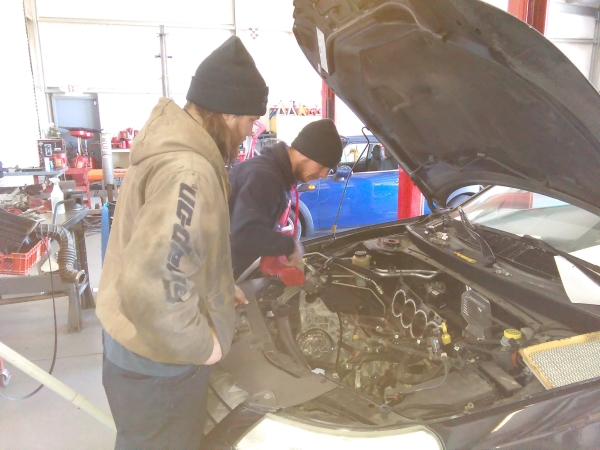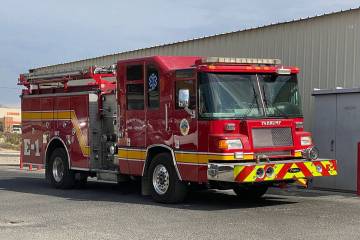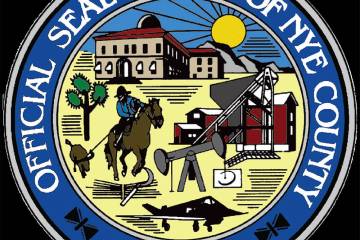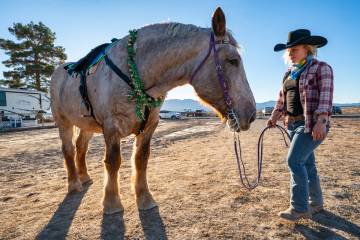Master mechanic offers tips to avoid cold-weather breakdowns
The only thing worse than enduring a car breakdown in the dead of summer in Pahrump is breaking down in freezing winter temperatures.
As such, there are steps car owners can take to help minimize such an occurrence, according to Paul Encks, owner of Enck's Auto Repair.
"Without proper maintenance, southern Nevada's temperature extremes can cause many headaches for drivers," he said. "Tires need to be checked around this time of year to make sure they're not weather-cracked and worn out and you definitely want to check your tire pressure because it seems to go down when it gets cold. You also want to verify that there is good tread on the tires."
Enck also said purchasing snow tires for the winter driving months most likely is a waste of money.
"People just need to drive for the conditions," he said. "I have a four-wheel drive but I never use it. We only get a couple of inches of snow on the road up in the Spring Mountain Pass each year, so if you drive for the conditions you should be fine, but not with bald tires."
Beneath the hood lies additional factors for motorists preparing their cars for the winter months.
Enck said properly functioning belts and hoses are critical to avoid a breakdown.
"They definitely need to be checked along with the car's cooling system, which should also be tested for protection levels," he said. "When this wind starts whistling down here we can get into the negative twenties or sometimes more than that. It's very important to make sure the cold protection is there and the belts and hoses are good so you won't have any leaks."
When cars sit overnight in 30-degree weather, many a driver has required a jump start to get the engine running.
Enck said the car's battery may not be the proper amperage.
"You want to pay attention to the cold cranking amps on the battery because if you put it on the meter, you might have 12 volts, but it's supposed to be 750 cold cranking amps. When your car is stone-cold, your car battery needs the proper amperage to turn the engine over. Voltage is one thing, but the amperage is what gives that starter motor the ability to run."
Antifreeze or coolant, according to Enck, needs to be checked regularly during the winter.
He also cautioned about over-protecting the car's cooling and heating systems.
"If you can't remember the last time your radiator was serviced, it might be time to have that looked at," he said. "Over-protection is just as bad because the system starts to sulfate and it starts to eat the aluminum fittings up and causes things to fail, like the head gaskets."
The life-blood of an automobile is the engine's oil weight, which should always match the manufacturer's specifications.
"Some of the newer vehicles are using 10W-20 weight because the engine blocks are laser cut," he said. "Most of them are not cast anymore so their tolerances are a lot tighter. Whatever the manufacturer recommends is all you need. If it says 10W-30, that's what you need to run. If you try a heavier weight oil it won't turn over right and if it's too light of a weight, you can lose the motor."
Breakdowns aside, Enck said lack of proper maintenance will affect the car's performance, whether it be summer or winter.
He said extreme heat and extreme cold are equally tough on a car's performance.
"Tune-ups are another thing people should keep in mind because if a tune-up is not quite right, their engines are running richer, longer because it is colder out," he said. "They tend to start missing and failing at that point and drivers will notice a lack of power because the car won't run up the mountain right."
Additionally, Enck said if a driver suffers a breakdown, especially in a remote location, there are actions drivers can take to make the episode slightly tolerable.
"You want to purchase an emergency kit with a flashlight and some flares," he said. "You also want to make sure you have a good cell phone, water and have some warm clothing because you might be sitting out there for a while before someone comes to help."
Listed on its website, the Automobile Association of America (AAA) offered the following additional tips for the winter driving season:
(1). Avoid driving while you're fatigued. Getting the proper amount of rest before taking on winter weather tasks reduces driving risks.
(2). Never warm up a vehicle in an enclosed area, such as a garage.
(3). Always keep your gas tank at least half full to avoid gas line freeze-up.
(4). If possible, avoid using your parking brake in cold, rainy and snowy weather.
(5). Do not use cruise control when driving on any slippery surface (wet, ice, sand).
(7). Always look and steer where you want to go.
(8). Use your seatbelt every time you get into your vehicle.
Contact reporter Selwyn Harris at sharris@pvtimes.com.
Enck's Auto Repair mechanic David Souto makes repairs to a car as fellow mechanic Jeff Hamilton observes the work being made on a late model car in for repairs this week. Owner Paul Enck said motorists should begin thinking about preparing their autos for the winter driving season. Selwyn Harris/Pahrump Valley Times

















